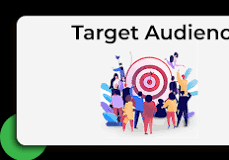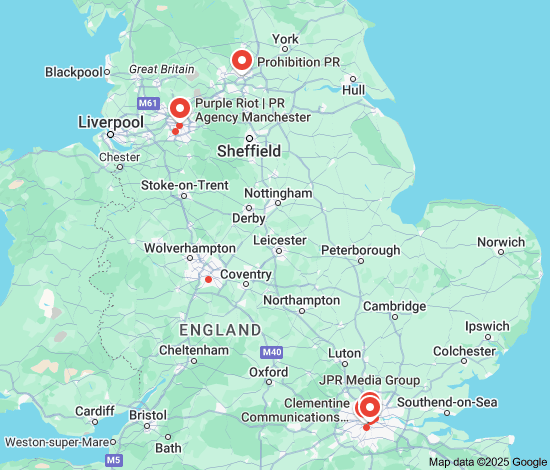Unlocking Success: The Essential Role of a Brand Management Consultant
The Role of a Brand Management Consultant in Building Strong Brands
Brand management is a critical aspect of any business that aims to create a strong and recognisable brand identity. A brand management consultant plays a vital role in helping businesses develop, maintain, and enhance their brand image to connect with their target audience effectively.
Brand management consultants are experts in understanding market trends, consumer behaviour, and competitive landscapes. They work closely with businesses to develop comprehensive brand strategies that align with the company’s values, goals, and target market.
One of the key responsibilities of a brand management consultant is to conduct thorough research to identify the unique selling points of a brand and its competitive advantages. By analysing market data and consumer insights, they can help businesses position themselves effectively in the market to stand out from competitors.
In addition to developing brand strategies, brand management consultants also oversee the implementation of branding initiatives across various channels. They ensure consistency in messaging, visual identity, and customer experience to build trust and loyalty among consumers.
Furthermore, brand management consultants monitor and evaluate the performance of branding efforts to measure their impact on consumer perception and business growth. They make data-driven decisions to adjust strategies as needed and maximise the effectiveness of branding campaigns.
Overall, a brand management consultant plays a crucial role in shaping how a business is perceived by its target audience. By leveraging their expertise in branding strategies, market research, and consumer insights, they help businesses build strong brands that resonate with consumers and drive long-term success.
Understanding the Role and Benefits of a Brand Management Consultant: Key Responsibilities and Strategy Development
- What is the role of a brand management consultant?
- How can a brand management consultant help my business?
- What are the key responsibilities of a brand management consultant?
- How do brand management consultants develop effective branding strategies?
- What are the benefits of hiring a brand management consultant for my business?
What is the role of a brand management consultant?
A brand management consultant plays a pivotal role in guiding businesses on developing, enhancing, and maintaining their brand identity. They leverage their expertise in market analysis, consumer behaviour, and competitive landscapes to craft tailored brand strategies that align with the company’s objectives and resonate with the target audience. Brand management consultants conduct in-depth research to identify a brand’s unique selling points and competitive advantages, helping businesses position themselves effectively in the market. They oversee the implementation of branding initiatives across various channels to ensure consistency in messaging and visual identity. By monitoring and evaluating the performance of branding efforts, brand management consultants make data-driven decisions to optimise strategies and drive positive consumer perception and business growth.
How can a brand management consultant help my business?
A brand management consultant can significantly benefit your business by providing expert guidance and strategic insights to enhance your brand’s identity and market positioning. They can help you develop a clear brand strategy that aligns with your business goals and resonates with your target audience. By conducting in-depth market research and competitor analysis, a brand management consultant can identify unique opportunities for differentiation and growth. They also ensure consistency in branding across all touchpoints, from messaging to visual elements, to build trust and loyalty among consumers. Ultimately, a brand management consultant can help elevate your brand’s reputation, increase customer engagement, and drive long-term success for your business.
What are the key responsibilities of a brand management consultant?
Brand management consultants play a pivotal role in helping businesses develop and maintain a strong brand identity. Key responsibilities of a brand management consultant include conducting thorough market research to identify competitive advantages, developing comprehensive brand strategies that align with the company’s values and target market, overseeing the implementation of branding initiatives across various channels to ensure consistency, and monitoring the performance of branding efforts to measure their impact on consumer perception and business growth. By leveraging their expertise in branding strategies, market insights, and consumer behaviour, brand management consultants help businesses stand out in the market and build lasting connections with their target audience.
How do brand management consultants develop effective branding strategies?
Brand management consultants develop effective branding strategies by conducting thorough research to understand the market landscape, consumer behaviour, and competitive positioning of a business. They start by identifying the unique selling points and brand values that differentiate the business from its competitors. By analysing market data and consumer insights, brand management consultants can tailor branding strategies that resonate with the target audience and create a strong brand identity. They focus on creating consistent messaging, visual elements, and customer experiences across all touchpoints to build brand recognition and loyalty. Through continuous monitoring and evaluation of branding initiatives, brand management consultants refine strategies to ensure they align with business goals and drive long-term success in the competitive market environment.
What are the benefits of hiring a brand management consultant for my business?
Hiring a brand management consultant for your business offers a range of benefits that can significantly impact your brand’s success. These experts bring in-depth knowledge and experience in developing effective brand strategies tailored to your business goals and target audience. By leveraging their expertise, you can gain valuable insights into market trends, consumer behaviour, and competitive landscapes, enabling you to position your brand effectively and stand out from competitors. Brand management consultants also ensure consistency in messaging and visual identity across all channels, enhancing brand recognition and fostering trust among consumers. Additionally, their ability to monitor and evaluate branding efforts allows for data-driven decision-making to optimise strategies and drive business growth. Ultimately, investing in a brand management consultant can help elevate your brand’s image, increase market visibility, and establish a strong competitive edge in the industry.







